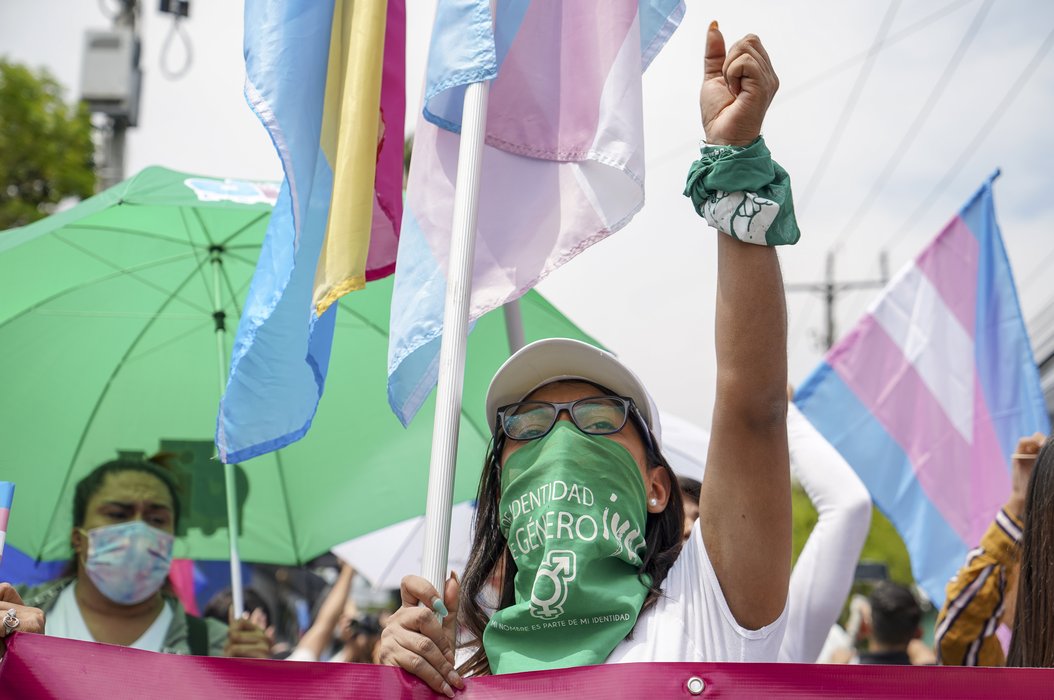
On 25th May 2022, El Salvador’s Legislative Assembly extended the state of exception regime for the third consecutive month. As previously reported on the CIVICUS Monitor, a state of exception has been in place since 27th March 2022, following a surge in gang-related killings. The emergency measures restrict freedoms of peaceful assembly and association, curtail the right to due process and allow for detention for up to 15 days without charges.
Association
#BajoLaLupa | #InvestigaciónenDDHH | Nuestro equipo legal publicó un informe sobre las principales vulneraciones de derechos humanos en los primeros 30 días del régimen de excepción. Si quieres conocer más puedes ver el informe completo acá 🧐 👉 https://t.co/XMF4yqC5Qf pic.twitter.com/wENW82UQgF
— Cristosal (@Cristosal) May 18, 2022
Between 27th March and 26th April 2022, the first month after the enactment of a state of exception in El Salvador, local civil society groups registered over 338 complaints of power abuses by security forces, most frequently cases of arbitrary detention. The report compiles complaints collected by civil society groups Cristosal, Fundación de Estudios para la Aplicación del Derecho (FESPAD), Servicio Social Pasionista (SSPAS), Asociación Azul Originario (AZO) and the Instituto de Derechos Humanos de la Universidad Centroamericana José Simeón Cañas (Idhuca).
Cristosal also detailed cases of persons who died in state custody in this period, torture and ill-treatment allegations and other human rights violations reported during the state of emergency.
Peaceful Assembly
#ElSalvador - Me preocupan las denuncias de estigmatización y criminalización de las protestas previstas en el #DíaDelTrabajador #1M por el @TrabajoSV @RolandoCastroSv. El Estado debe cumplir con su obligación de garantizar la libertad de reunion pacífica durante estas protestas. https://t.co/jQFP9EDxqN
— UN Special Rapporteur Freedom of Association (@cvoule) April 29, 2022
On 28th April 2022, the Minister of Labour, Rolando Castro, made public statements stigmatising people and organisations intending to march on International Labour Day, 1st May. Castro said the march should not take place amid the state of exception, and claimed that those marching would be demonstrating support for criminal gangs. The minister sought to discredit the yearly demonstration, linking the organisers to gangs. Trade unions and civil society organisations condemned the statements, saying that stigmatisation exposes human rights defenders and civil society organisations to risk of attacks and arbitrary restrictions.
Despite these threats, Labour Day protests were held on 1st May 2022, with hundreds of people marching for labour rights and condemning human rights violations taking place during the Bukele government.
In separate protests, on 17th May 2022, LGBTQIA+ rights activists demonstrated to mark the International Day Against Homophobia, Biphobia and Transphobia. Protesters marched through the main streets of San Salvador to express their rejection of a congressional commission’s decision to shelve a proposed gender identity law. They called for human rights guarantees for LGBTQIA+ people.
Expression
#RedArpas | 📣La Red por el Derecho a la Comunicación (ReDco), hace un enérgico llamado a a preservar la libertad de prensa en el país, luego de las acusaciones del Ministro de Seguridad, Gustavo Villatoro en contra de dos medios de comunicación.
— Red Informativa de Arpas (@arpassv) May 13, 2022
🔴Aquí los detalles👇👀 pic.twitter.com/ca587uuxYk
On 12th May 2022, the Minister of Security and Justice, Gustavo Villatoro, made statements villifying media outlets on Twitter. Villatoro named La Prensa Gráfica and El Diario de Hoy when claiming that some media outlets “protect interests of criminal structures.” He said that the outlets were “on the side of the terrorists and their allies in the opposition” and that they misrepresented information, but he did not present any evidence of these claims. However, the language used by Villatoro, also alleging that media outlets spread panic, coincides with the language used in the April 2022 legislation banning the dissemination of messages created by gangs that could “generate a state of anxiety and panic.”
For the second year in a row El Salvador had one of the steepest falls in Latin America in Reporters Without Borders (RSF)’s World Press Freedom Index. In the Index 2021 published on World Press Freedom Day, the country fell 30 positions in the RSF ranking in comparison with the previous year. According to RSF, President Nayib Bukele is exerting particularly strong pressure on journalists and is using the extremely dangerous tactic of portraying the media as the enemy of the people.
Separately, the Inter-American Commission on Human Rights’ Special Rapporteur on Freedom of Expression, Pedro Vaca, published a video on 3rd May 2022 calling on Salvadoran authorities to provide information on the investigation into the use of Pegasus spyware to hack journalists and members of the press in the country.